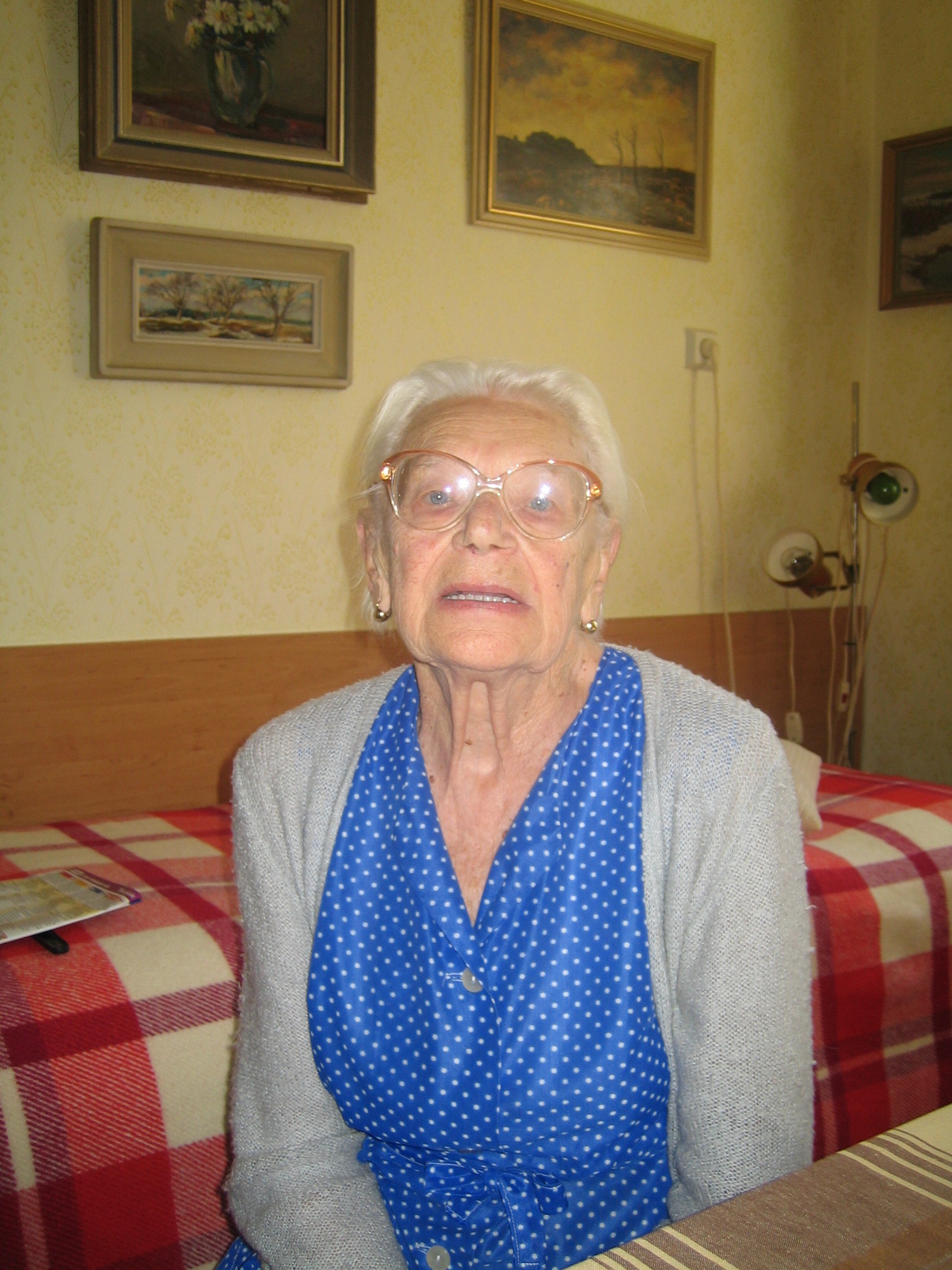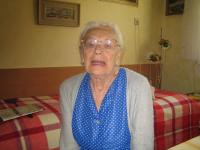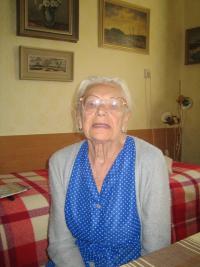It was incredibly silent under the rubble

Stáhnout obrázek
Růžena Horáková was born on the 12 of March 1924 in Radíč in the Sedlčany district. Her father was a coachman for the gentry, but he died when Růžena was four years old. Because her mother could not manage to look after both Růžena and her younger sister, Růžena was sent to her aunt in Vienna. There she attended a Czech primary school and a grammar school which was closed in 1938. After that, Růžena worked in a factory making batteries for military purposes. She spent almost the whole war in Vienna, she experienced many bombings - during one of them she hid herself in a house that was subsequently hit, burying her in the rubble. In February 1945 she and other Czechs fled from Vienna to the Protectorate of Bohemia and Moravia. She reached Pacov, where she worked at the local dairy before finding herself an administrative position at the Pelhřimov town council. After the war she got a job in administration in the state forestry in Slatiňany in the Chrudim district, where she remained until her retirement.

